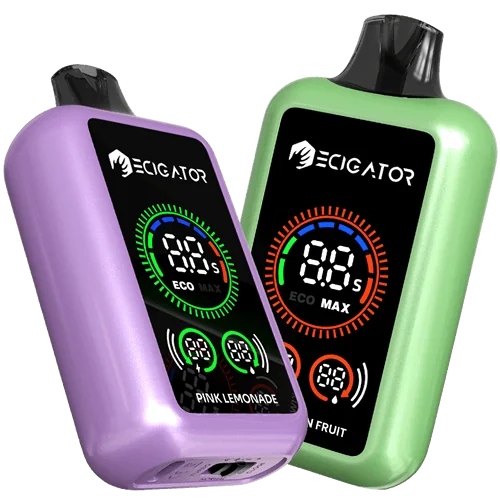Nicotine’s Overlooked Benefits: Mental & Cognitive Health
For decades, nicotine has been public health enemy number one, inextricably linked to the devastating consequences of combustible tobacco. In the understandable and vital quest to discourage smoking, nicotine itself has often been demonized. However, the advent and proliferation of tobacco harm reduction (THR) products – including vapes, heated tobacco, and oral nicotine pouches – are forcing a more nuanced conversation. These products offer adults a way to consume nicotine, a naturally occurring, non-intoxicating stimulant, without the thousands of harmful chemicals produced by burning tobacco. Yet, a legacy of anti-nicotine messaging persists, potentially harming not only adult smokers seeking safer alternatives but also millions of neurodivergent individuals who may, knowingly or unknowingly, be using nicotine for its cognitive and mood-regulating effects.
This isn’t to say nicotine is without its own considerations – it is undeniably dependence-forming. But as we move into an era where nicotine can be decoupled from the most dangerous delivery system (combustible cigarettes), it’s time to re-examine its properties and consider whether a blanket condemnation serves public health optimally, especially for specific populations.
The Neurodiversity Connection: Self-Medication and Nicotine
A compelling body of evidence suggests that adults with various forms of neurodiversity, such as Attention-Deficit/Hyperactivity Disorder (ADHD), smoke traditional cigarettes at significantly higher rates than the general “neurotypical” population – estimates range from four to six times higher. The leading hypothesis for this disparity is self-medication. For these individuals, nicotine isn’t just about satisfying a craving; it may be helping them manage core symptoms of their condition.
Many adults, both neurodivergent and neurotypical, who smoke or use THR products report doing so for the positive effects on anxiety and mood. Nicotine interacts with the brain’s neurochemistry, triggering the release of neurotransmitters like dopamine and serotonin. Dopamine is crucial for pleasure, motivation, and focus, while serotonin plays a role in mood regulation. This neurochemical release can elevate mood and ease anxious feelings. One older but relevant study from 2002 even found that nicotine can act as an “antidepressant” for many individuals, suggesting a complex interplay between nicotine and mood states.
Nicotine’s Impact on Cognitive Functions: Attention and Memory
Beyond mood, nicotine has well-documented effects on cognitive functions, particularly attention and working memory. These effects are especially pertinent when considering conditions like ADHD, schizophrenia, and potentially Autism Spectrum Disorder (ASD).
ADHD and Nicotine:
Public health professionals routinely prescribe stimulant medications (like methylphenidate or amphetamines) to individuals with ADHD to help manage symptoms such as inattention, impulsivity, and hyperactivity. It’s a striking parallel that individuals with ADHD are also significantly more likely to smoke. Could it be that nicotine, itself a stimulant, offers a similar, albeit less refined, form of symptom relief?
Research supports this notion. A study published in Pharmacology Biochemistry and Behavior investigated the effects of nicotine patches on non-smoking young adults with ADHD. The findings indicated that nicotine administration improved cognitive performance in several ADHD-related domains, including attention, vigor, and feelings of restlessness. This suggests that for some individuals with ADHD, nicotine may help sharpen focus and reduce some of the cognitive challenges associated with the condition.
Schizophrenia and Nicotine: A Striking Correlation
The link between schizophrenia and smoking is even more pronounced. Some estimates suggest that up to 90 percent of individuals with schizophrenia smoke cigarettes, a stark contrast to the approximately 11 percent smoking rate among U.S. adults in 2023. This incredibly high prevalence has long intrigued researchers, pointing towards a potential self-medication mechanism.
Nicotine use appears to offer measurable benefits for individuals with schizophrenia. A pivotal 2017 study published in Nature Medicine concluded that nicotine might be a therapeutic strategy for treating cognitive deficits associated with schizophrenia. The research found that nicotine helps restore activity in the prefrontal cortex, an area of the brain crucial for executive functions, which is often hypoactive in individuals with schizophrenia. One of the study authors remarked that the findings provided “compelling biological evidence that a specific genetic variant contributes to risk for schizophrenia, defines the mechanism responsible for the effect, and validates that nicotine improves that deficit.”
More recently, a 2024 study examining the “impact of smoking on clinical symptoms after antipsychotic treatment” assessed 145 male patients with schizophrenia and found that those who smoked “showed greater improvement in negative symptoms” (such as apathy and social withdrawal) than those who did not smoke. While no responsible health professional would advise patients with schizophrenia to smoke cigarettes due to the severe harms of combustion, these findings underscore that nicotine itself may have therapeutic properties that these individuals are intuitively seeking. Access to safer forms of nicotine delivery becomes particularly relevant here.
Autism Spectrum Disorder (ASD) and Nicotine: Emerging Research
The potential role of nicotine in managing symptoms associated with Autism Spectrum Disorder is also an area of emerging interest. A 2015 study published in the Journal of Autism and Developmental Disorders, for instance, explored the use of transdermal nicotine patches. The researchers found that nicotine patches reduced the need for emergency medications to manage behavioral outbursts and concluded that nicotine “may safely reduce aggression and irritability in people with ASD.” While more research is needed, this points to another neurodivergent group for whom nicotine might offer specific benefits, separate from the harms of smoking.
Nicotine Use in Substance Use Disorder (SUD) Recovery
Individuals with substance use disorders (SUD) are also far more likely to smoke than the general population. For this group, cigarettes or safer nicotine products (like vapes or pouches) can play a complex role. Some may use nicotine to complement or even as a partial substitute for other substances like opioids or alcohol. Nicotine can serve as a neurochemical bridge, helping to manage cravings and withdrawal symptoms associated with other dependencies, or simply providing a familiar ritual and coping mechanism during the challenging recovery process.
The Public Health Dilemma: Demonization vs. Harm Reduction
Given the high prevalence of smoking among neurodivergent populations and individuals with SUD, and the emerging evidence of nicotine’s potential therapeutic or symptom-mitigating effects for these groups, a critical public health question arises: How should we approach nicotine regulation? For decades, public health campaigns have, with the laudable goal of discouraging smoking, deliberately demonized nicotine itself. This strategy made sense when deadly cigarettes were the primary and almost exclusive source of nicotine.
However, today, with the availability of THR products that deliver nicotine without combustion, this blanket condemnation of nicotine becomes problematic. It makes it a “difficult pill to swallow” for public health agencies and policymakers to acknowledge any potential benefits or even the significantly reduced harm profile of nicotine when delivered via non-combustible means. This historical messaging also makes it challenging to consider the possibility that a proportion of the U.S. teens who vape nicotine (around 2.3% frequently, as cited in the source) may have diagnosed or undiagnosed ADHD or other conditions for which they are, in effect, self-medicating. The source material poignantly notes that, to date, “no researcher has asked and tested this basic, obvious question” on a large scale in the context of youth vaping.
Vapes and other THR products can provide a gateway out of smoking for many adults, including those who are neurodivergent, while simultaneously offering some level of symptom relief. These products are also often easier to obtain than prescription stimulant medications, particularly for individuals with limited or no access to healthcare, or those who face stigma in seeking formal diagnoses and treatment.
Ecigator is one of the well-known vape brands spun off from FM Technology Co., Ltd, it’s an ISO-certified disposable vape manufacturer for OEMs, ODMs, and OBM since 2010. The founder team comes from top firms with more than 10 years of experience in the vaping industry and has devoted thousands of hours to providing users with a better and better experience.

18K Disposable Pod Kit
Disposable Pod Kit – 18ml changeable pod with 650mAh rechargeable battery.

20K with Large Screen
20000 Puffs Disposable Vape with large screen. Normal and Boost working modes.

20K DTL Disposable
20K Puffs DTL(Directly to Lung) disposable vape with airflow control and screen.
The Path Forward: Embracing Science and Supporting Vulnerable Adults
Numerous public health bodies, including those in the UK, have concluded that nicotine vapes are significantly less harmful than combustible tobacco. The U.S. FDA itself has authorized some THR products – including specific vapes, heated tobacco products, and even flavored nicotine pouches – after a rigorous scientific review determined them to be “appropriate for the protection of public health,” primarily in the context of helping adult smokers switch completely from cigarettes.
Despite this, misinformation about nicotine and vaping persists, even among medical professionals who could play a crucial role in harm reduction by encouraging neurodivergent patients or those with SUD who smoke to switch to safer alternatives. It’s time for a paradigm shift. Public health leaders and policymakers need to move beyond the historical demonization of nicotine and embrace the principles of tobacco harm reduction. This means:
- Differentiating Nicotine from Smoke: Clearly distinguishing between the risks of nicotine itself and the vastly greater risks of inhaling the toxic byproducts of tobacco combustion.
- Supporting Innovation in Safer Nicotine Delivery: Encouraging the development and responsible marketing of regulated, less harmful nicotine products for adult smokers who cannot or will not quit nicotine.
- Educating Healthcare Professionals: Ensuring doctors and other healthcare providers have accurate information about the relative risks of different nicotine products so they can offer appropriate advice to their patients who smoke.
- Researching Nicotine’s Role in Neurodiversity: Investigating the self-medication hypothesis more thoroughly, particularly among youth and adult vapers, to better understand usage patterns and needs.
- Tailoring Public Health Messaging: Crafting messages that support vulnerable adults who may rely on nicotine for therapeutic or cognitive benefits in transitioning to the safest possible sources, while simultaneously strengthening efforts to prevent nicotine initiation among all youth.
The goal is not to promote nicotine use, but to acknowledge its complex role and to ensure that our public health strategies are grounded in current science, compassion, and a commitment to reducing harm for all populations, including those who are neurodivergent or struggling with addiction.
- Vape-Linked Stock CEA Industries Surges 650% on $500M BNB Treasury Deal - July 29, 2025
- UK Considers £100 Fines for Vaping at Outdoor Bus Stops - July 29, 2025
- Spain Galicia to Ban All Vape Sales and Use for Minors - July 29, 2025





 Ecigator
Ecigator


